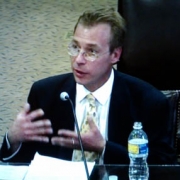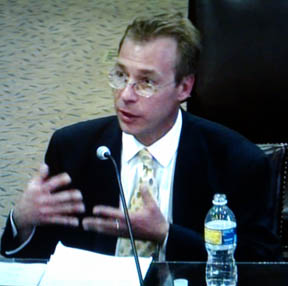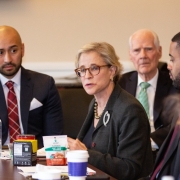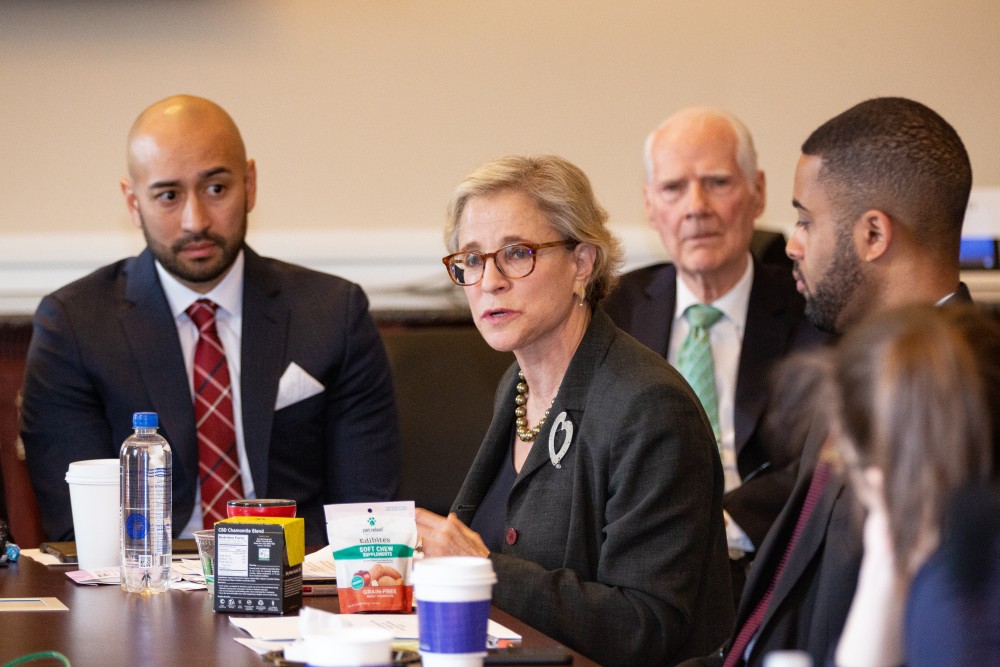
I spent a week last month in Boise with two members of the staff of Melaleuca—a company that makes more than 400 nutritional, cleaning, personal care, and cosmetic products—making lobbying visits to the Idaho legislature. Katie Hart and Jay Cobb work for Frank Vandersloot, CEO of Melaleuca. Vandersloot is a highly successful, conservative businessman who is committed to protecting Idaho residents from abusive medical debt collection practices after discovering that one of his employees was hit with thousands of dollars in bills—including hefty lawyers’ fees and court costs—based on a $294 medical debt that she couldn’t even identify. The stark reality is that 50 percent of bankruptcies in America are caused by medical debt. He was championing a bill called the Idaho Patient Act, House Bill 515.
Many people believe federal law provides broad protections for people in debt. While the federal Fair Debt Collection Practices Act (FDCPA), enforced by Federal Trade Commission, makes it illegal for debt collectors to use abusive, unfair, or deceptive practices when they collect debts, it doesn’t address how debts are calculated or curb predatory fees, penalties and court costs.
NCL has worked with Melaleuca for several years, first to fight a bill in Congress that would have essentially legalized pyramid scheme activity. Last October, I flew to Melaleuca headquarters in Idaho Falls to meet nearly half of the state’s legislators who came to town as part of their tour of businesses in Idaho. At that gathering, Vandersloot discussed his hope to pass a bill to address these predatory collection practices, aiming his fire at the practice of ginning up the cost to patients of medical debts with thousands in lawyers’ and court fees; often patients have no idea where the debt is from and debt collectors aren’t required to provide that information to them. The Idaho Patient Act addresses that issue.
Vandersloot also puts his money where his mouth is: not only did he propose a legislative remedy, he and his wife Belinda created a $1 million fund to provide legal counsel to Idahoans who have been hit with these attorney bills. Consumer advocates like NCL have been working for decades to curb the excesses of this industry. But to see a conservative CEO take on this issue gives the effort a new push.
Sticking up for the little guy is not out of character for Vandersloot. He spoke with the same fervor when we worked together fighting a bill that would have legalized pyramid schemes. In neither case was there any financial reward coming to Melaleuca—Vandersloot took a stand on this issue because he felt it was the right thing to do. Though we may disagree on a host of other matters, on this we are aligned and that is a good thing for vulnerable consumers. Strange bedfellows are a big advantage when it comes to getting things done in the political arena.
Katie Hart has been wisely deployed to live and work in Boise while the legislature is in session and navigate this important bill through the complicated legislative process. She’s a smart and charismatic lawyer—she and Jay Cobb, an expert strategist, could teach Lobbying 101: they’ve met with the Idaho Hospital Association, Idaho doctors, insurance companies, and the Idaho trial lawyers and revised the bill to address their concerns.
Specifically, the Idaho Patient Act proposes the following:
- All health care providers must submit all charges for procedures performed to an insurance carrier within 45 days.
- Within 60 days, the patient must receive a summary of services rendered during treatment and recovery, including the names and contact information for all entities that may be billing the patient separately, such as an individual doctor.
- All providers must then send a final statement with a total amount owed by the patient after insurance. The bill must correspond with the original list of services.
- Health care providers must wait 60 days after sending the final notice before charging a patient interest on an outstanding bill and hiring a collection agency. They must wait 90 days from the final statement before they take “extraordinary collection actions,” which means a lawsuit, or reporting a patient to a credit bureau for failure to pay.
- Finally, in medical debt cases that result in litigation, the legislation limits the amount attorney fees and costs that can be shifted to the patient to $350 for uncontested cases and $750 for contested cases. Currently, there is no official cap for fees that can be charged to delinquent patients by collection agencies and their representing lawyers.
In Boise, my first order of business was to register in the Idaho capitol building as a lobbyist, even though I was only going to be there for the day. We wanted to do everything by the book! For $11 the Secretary of State’s office put me into the system and off we went.
Jay Cobb explained that Idaho is very conservative where rules or regulations are frowned upon. Of the 70 members of the Idaho House, 56 are Republican and some of those lean far right. 14 are Democrats. Of the 35 members of the Senate, only 7 are Democrat. The Governor is Republican, as is the Secretary of State and the Attorney General.
Katie and Jay have been working for months with elected officials, revising the bill without compromising its impact, and last week the measure was reported favorably from the House Business Committee by a 15-2 vote (after a 5 hour hearing with many witnesses and terribly sad stories). Adding to the challenge of getting this bill enacted the second Vice Chair of the Republican Party in Idaho, and a member of the Idaho legislature were adamantly opposed to the legislation because as their egregious medical debt collection practices were epicenter of the problem. Now the bill goes to the full House and over to the Senate.
While in the state house, we met with Senator Grant Burgoyne, a democrat who has provided legal representation to the collections industry. His observation? this bill would rein in “bad actors,” and the collections industry as a whole doesn’t oppose it. Senator Michelle Stennett, a democrat from Ketchum, told us about the challenges of getting what she thought were reasonable measures out of committee in Idaho because members are so loathe to pass any laws. The longest serving Democratic House member told us she believes the bill will pass, and the very smart and entertaining newly elected Boise Representative Steve Berch, who ran five times as a democrat in a red district and finally got elected, also predicts a positive outcome for this bill.
To cap off the day, both U.S. Senators were in the State House and I had the chance to say hello to one of them, Senator James Risch (R-ID) and meet his DC staff.
The calculus changes when a conservative CEO with political clout backs a bill to offer protections to consumers who -through no fault of their own -have medical debt. Thanks to Frank Vandersloot, Katie Hart and Jay Cobb and the whole team at Melaleuca for making their case to the Idaho legislature so persuasively.
We hope this bill gets enacted in Idaho. If it does, the law will become a template for other states to put reasonable guardrails around collection of medical debt and offer some much-needed consumer protections. And maybe we can even hope that Vandersloot’s willingness to use his clout and bully pulpit to speak out on behalf of those who have no voice will be emulated by other CEOs.
Postscript
On March 9, the Idaho Senate passed the Idaho Patient Act 32-1. On March 16 Idaho Governor Brad Little signed the bill into law.
Congratulations to Frank Vandersloot, Melaleuca’s CEO, to his talented team of Katie Hart and Jay Cobb, and to all the members of the Idaho state legislature, who stood up for consumers and understood that one in seven Idahoans struggle with medical debt.
To quote the words on the Hanukkah dreidel, “A great miracle happened there.”
























